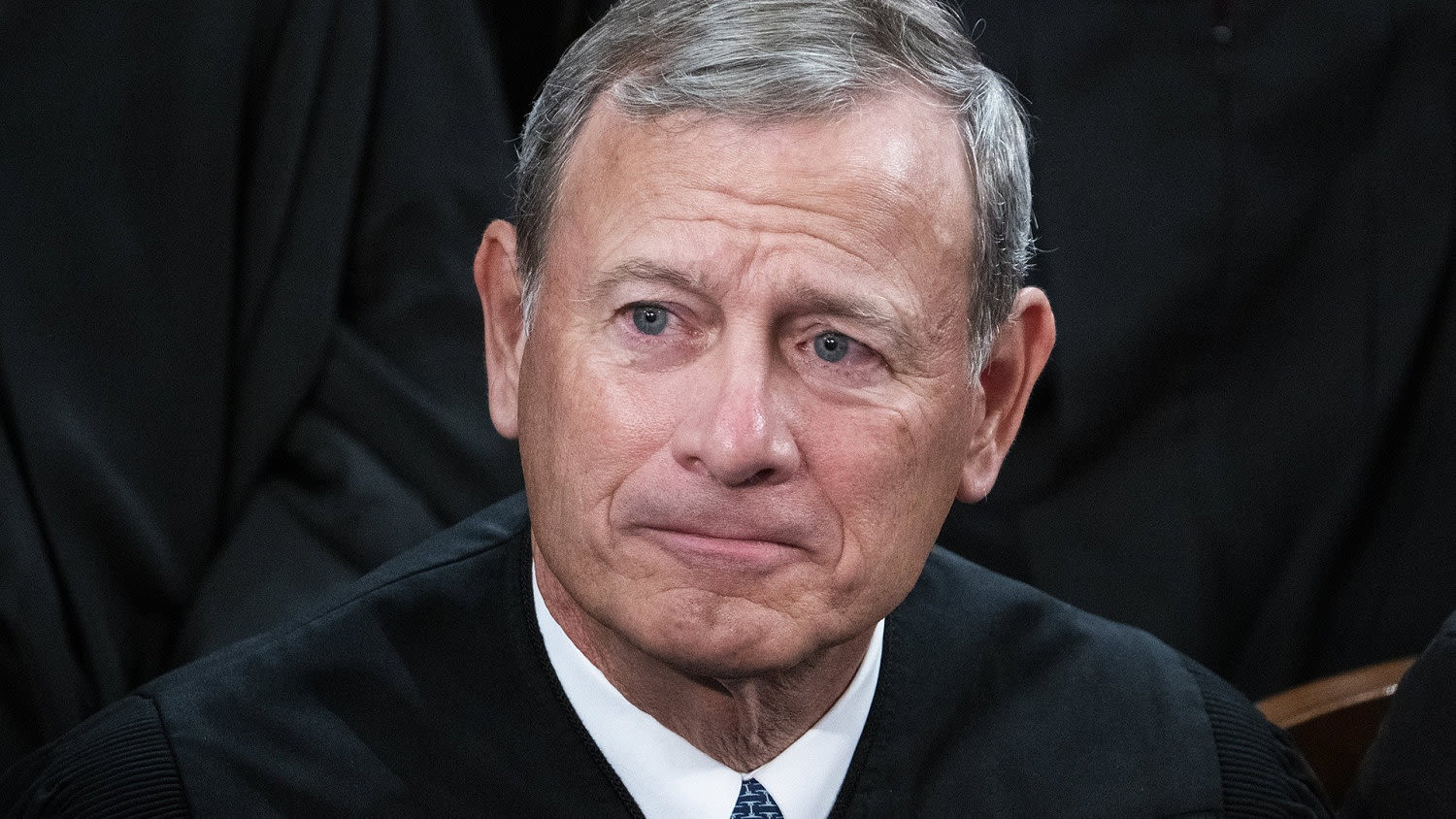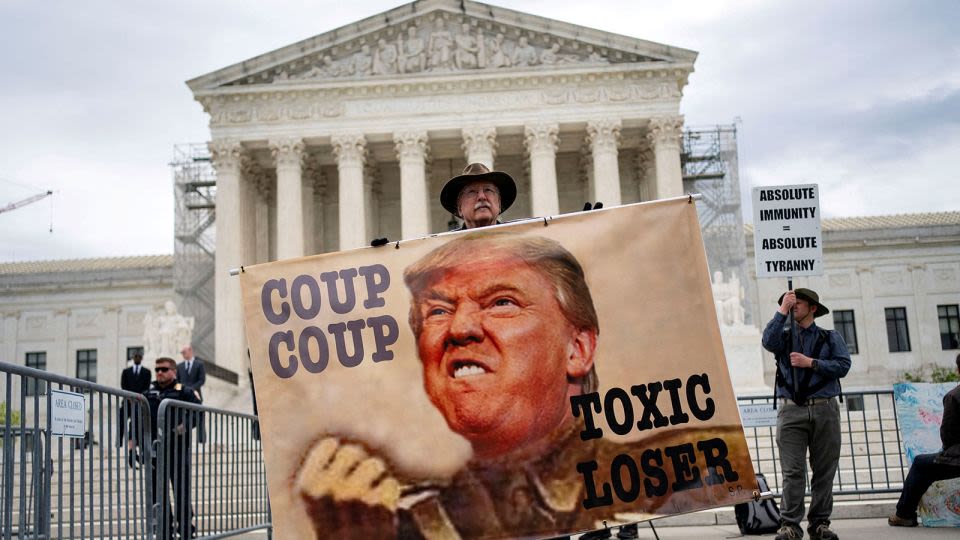Search results
Jun 30, 2023 · With the Supreme Court approaching the start of summer, the justices will likely decide the Court’s major remaining cases by late June. Here is a list of the major decisions expected, including rulings on free speech, redistricting, the environment, student loans, immigration, and speech protections for internet content providers.
- Overview
- Consumer Financial Protection Bureau v. Community Financial Services Association of America, Limited
- Alexander v. South Carolina State Conference of the NAACP
- United States v. Rahimi
- Securities and Exchange Commission v. Jarkesy
- Loper Bright Enterprises, Inc. v. Raimondo
- Trump v. Anderson
- Moody v. NetChoice, LLC and NetChoice, LLC v. Paxton
The United States Supreme Court will have reached decisions in a number of significant cases by the end of its current term, which began on October 2, 2023, and effectively ends in late June or early July, when the Court typically goes into recess. Issues to be addressed by the Court include the constitutionality of the system used to fund the Consumer Financial Protection Bureau; the proper criteria for distinguishing racial from merely partisan gerrymandering in the design of state electoral districts; the constitutionality of a federal law that prohibits persons under a domestic violence restraining order from possessing firearms; the validity of the long-standing judicial rule known as “Chevron deference,” which requires that courts defer to a federal regulatory agency’s reasonable interpretation of an ambiguous federal statute; the constitutionality of laws enacted in Florida and Texas for the purpose of limiting the ability of online social media platforms to control the content posted on their websites; the constitutionality of provisions of the founding legislation of the Securities and Exchange Commission (SEC) that set forth the methods of the agency’s enforcement of financial regulations; and the validity of a ruling in which the Colorado Supreme Court held that Donald Trump is ineligible to appear on the state’s 2024 Republican primary ballot in view of his role in the January 6 U.S. Capitol attack.
Below is a list of seven major cases scheduled for argument before the Supreme Court in its 2023–24 term.
Argued on October 3, 2023. In 2017 the Consumer Financial Protection Bureau (CFPB), which was established by the Dodd-Frank Wall Street Reform and Consumer Protection Act (2010) in the wake of the financial crisis of 2007–08, issued a Payday Lending Rule, one of whose components prohibited payday lenders from making additional attempts to withdraw ...
Argued on October 11, 2023. In January 2023 a federal district court in South Carolina ruled that one of the electoral districts redrawn in legislation enacted in 2022 by the state’s Republican-controlled General Assembly following the 2020 census—the growing 1st congressional district—was an unconstitutional racial gerrymander in violation of the equal protection clause of the Fourteenth Amendment, because its redrawing involved moving thousands (some 62 percent) of Black residents of the 1st district into the 6th district, which had long been represented by a Black Democrat. The redrawing thus demonstrated, in the court’s assessment, that race was the “predominant factor” in the reapportionment plan. In response to the district court’s ruling, the legislators filed a petition for review with the Supreme Court, arguing in their appeal that the district court had presumed without evidence that they had acted in “bad faith,” when in fact they had taken only political factors, as well as traditional redistricting principles, into account in their redrawing of the district. (Notably, the district had elected a Democratic representative in 2018.) Their aim, as they later acknowledged, had been to make the district easier for Republican candidates to win, but it was not their final purpose or ultimate goal to rid the district of Black voters. The several questions presented by the case, as listed in the Supreme Court’s statement granting review in its 2023–24 term, were potentially indicative of the Court’s likely position on the constitutionality of the reapportionment plan. Among the questions were:
•“Did the district court err when it failed to apply the presumption of good faith and to holistically analyze District 1 and the General Assembly’s intent?”
•“Did the district court err when it failed to disentangle race from politics?”
•“Did the district court err in upholding the intentional discrimination claim when it never even considered whether—let alone found that—District 1 has a discriminatory effect?”
Argued on November 7, 2023. In February 2020 a Texas state court issued a domestic-violence restraining order against Zackey Rahimi, a man who in December 2019 had violently attacked his girlfriend in a public parking lot (pushing her to the ground, dragging her to his car, banging her head against the car’s dashboard, and shooting his gun in the a...
Argued on November 29, 2023. During the Great Depression, which began with the stock market crash of 1929, Congress passed legislation in 1934 that created the Securities and Exchange Commission (SEC), a federal agency to which it delegated regulatory authority for the purpose of preventing misleading, manipulative, or financially dangerous practices related to the purchase or sale of stocks and other securities. The SEC was given the power to enforce market regulations and related legislation by initiating civil lawsuits in federal court or by holding internal hearings before administrative law judges. Following a hearing before an administrative law judge begun in 2013 and a later review by the commission, the SEC found George Jarkesy and his financial advisory firm, Patriot28, guilty of securities fraud and ordered him to pay a civil penalty of $300,000 and to surrender through his firm a total of $685,000 in what it deemed ill-gotten gains. Jarkesy then petitioned the Fifth Circuit Court of Appeals to review the SEC’s order, arguing in his appeal that major provisions of the early 20th-century legislation establishing the structure and operation of the SEC are unconstitutional. Specifically, according to Jarkesy: (1) the SEC’s delegated authority to pursue civil penalties before administrative law judges violates the Seventh Amendment, which guarantees a trial by jury for those subject to civil lawsuits (though the right to a jury trial may be waived); (2) Congress unconstitutionally delegated legislative authority to the SEC by failing to provide an “intelligible principle” for deciding between civil lawsuits in federal court or internal hearings; and (3) Congress violated the separation of powers by providing special protections against removal to administrative law judges and members of the SEC’s board of commissioners. In a ruling issued in May 2022, a three-judge panel of the Fifth Circuit accepted all three of Jarkesy’s conclusions and vacated the SEC’s decision. In its petition for review of the Fifth Circuit’s decision, submitted to the Supreme Court in March 2023, the Biden administration disputed each of the Fifth Circuit’s findings and emphasized the harmful practical consequences that would follow if the court’s decision were allowed to stand.
Special offer for students! Check out our special academic rate and excel this spring semester!
Argued on January 17, 2024. In June 2021 a federal district court in Washington, D.C., issued a summary judgment in favor of the National Marine Fisheries Service (NMFS), a federal agency that regulates commercial fishing in U.S. federal waters, in a case that challenged a rule finalized by the agency in 2020 requiring the fishing industry to pay t...
Argued on February 8, 2024. In September 2023 a group of voters in Colorado filed suit in a state district court seeking an order prohibiting Donald Trump’s name from appearing on the state’s 2024 Republican primary ballot. The voters argued that Trump’s actions on the day of the January 6 U.S. Capitol attack disqualify him from holding the office ...
To be argued on February 26, 2024. In January 2021, shortly after the January 6 attack on the U.S. Capitol, the popular microblogging service known as Twitter (later renamed X) “permanently” suspended the account of Pres. Donald Trump on the ground that the comments (“tweets”) that he had posted on the platform before, during, and after the January...
Jun 30, 2022 · How the Supreme Court ruled in the major decisions of 2022. By Ann E. Marimow. , Aadit Tambe. and. Adrian Blanco. June 30 at 2:40 p.m. 459. The Supreme Court’s decision to overturn Roe v....
The United States Supreme Court will have reached decisions in a number of significant cases by the end of its 2022–23 term in late June or early July. Important issues to be addressed by the Court include the Environmental Protection Agency’s regulatory authority, voting rights, tribal or Native.
News about Supreme Court, David Tatel, voting rights
News about Supreme Court, Justice Department, cases
News about Supreme Court, Samuel Alito, bankruptcy proceeding
Also in the news
Jun 6, 2023 · The Supreme Court Case That Will Decide if Voting Rights Should Be Race-Blind; How a Supreme Court justice's paragraph put the Voting Rights Act in more danger; Indian Child Welfare Act....
- Washington Desk
Mar 27, 2023 · A case in which the Court held that Title VII of the Civil Rights Act of 1964 prohibits discrimination in transfer decisions that cause some harm, not merely "significant" harm. Granted Jun 30, 2023
People also ask
When does the Supreme Court end?
What will the Supreme Court decide in 2022?
What will the Supreme Court decide in June?
Is the US Supreme Court wrapping up its term?
Dec 21, 2021 · Erwin Chemerinsky. Photo by Jim Block. Although 2021 certainly had important developments in the U.S. Supreme Court, there also was a sense of it being a year of waiting for the blockbuster...



